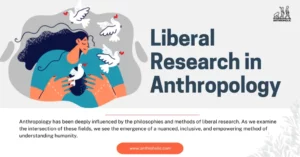AI Answer Evaluation Platform Live Now. Try Free Answer Evaluation Now
Cousin Marriage
Cousin marriage, which is also referred to as consanguineous marriage, involves two people who are related as cousins, typically second cousins or more closely, getting married and starting a family together. The practice of cousin marriage has been prevalent throughout human history and is still practiced in many societies around the world.

The prevalence and cultural significance of cousin marriage varies across different cultures and regions. In some societies, such as in the Middle East and South Asia, cousin marriage is widely practiced and has important social and economic implications. In other societies, such as in Western Europe and North America, cousin marriage is less common and may be stigmatized or even illegal in some jurisdictions.
The cultural significance of cousin marriage can vary widely between societies. In certain societies, the practice of marrying one’s cousin is viewed as a means of fortifying familial bonds and safeguarding the family’s prosperity and social standing. In other cultures, cousin marriage may be seen as taboo or forbidden due to religious or cultural beliefs. Some societies may also have complex rules and taboos around cousin marriage, such as restrictions on marrying certain types of cousins or requiring a certain level of consent from family members.
The prevalence and cultural significance of cousin marriage in different societies can provide valuable insights into the complex social and cultural dynamics of human societies, and understanding these dynamics is an important area of study in anthropology.
Historical and Cross-Cultural Perspectives
Cousin marriage has been practiced throughout human history and across many different cultures and regions. In some societies, such as in ancient Egypt and pre-Islamic Arabia, cousin marriage was seen as a way to maintain royal bloodlines and consolidate power within ruling families. In other cultures, such as in India and Pakistan, cousin marriage is still widely practiced and is often seen as a way to maintain family honor, preserve wealth and property, and strengthen family ties.
There are also social and economic reasons why cousin marriage may be preferred in certain societies. For example, in some traditional societies, marriage between cousins may be more acceptable than marriage between individuals from different social classes or tribes. Cousin marriage may also be seen as a way to maintain family businesses or agricultural holdings within the family.
Perceptions of cousin marriage can vary widely between cultures. In some societies, such as in parts of the Middle East and South Asia, cousin marriage is seen as a desirable and even expected form of marriage. In other societies, such as in Western Europe and North America, cousin marriage may be viewed as taboo or even illegal. Some cultures may have complex rules and taboos around cousin marriage, such as restrictions on marrying certain types of cousins or requiring a certain level of consent from family members.
The practice and perception of cousin marriage varies widely across different cultures and time periods, and understanding these differences can provide valuable insights into the complex social and cultural dynamics of human societies
Biological Implications
Cousin marriage can have biological implications, particularly with regards to genetic risks associated with consanguineous unions. Children born to cousins have a higher risk of inheriting genetic disorders and congenital abnormalities, such as thalassemia, sickle cell anemia, and cystic fibrosis. This is due to the fact that cousins share a greater percentage of their DNA than unrelated individuals, which increases the likelihood of inheriting harmful recessive genes.
Medical perspectives and studies on the health outcomes of children born from cousin marriages have shown a higher incidence of birth defects and infant mortality rates in such unions. However, there is also some evidence to suggest that not all consanguineous unions carry the same level of risk, and that the degree of genetic relatedness between cousins may be a determining factor in the severity of potential health outcomes.
Cultural attitudes towards genetic risks and cousin marriage can vary widely. In some societies, the risks associated with cousin marriage may be downplayed or even denied, while in others there may be a greater awareness of these risks and efforts to discourage or limit consanguineous unions. In many cases, cultural and religious beliefs may also play a role in shaping attitudes towards cousin marriage and its potential biological implications.
Cultural and Social Implications
Cousin marriage can have significant cultural and social implications. In societies where cousin marriage is prevalent, it can play a key role in shaping family dynamics and social structures. Cousin marriage can help to maintain family wealth, status, and influence, and can reinforce alliances between families. It can also shape marriage patterns, with individuals expected to marry within a certain pool of eligible cousins.
In modern times, perceptions of cousin marriage vary widely. In some cultures, there is a growing awareness of the potential genetic risks associated with consanguineous unions, which has led to a decline in the practice. In other cultures, cousin marriage may be viewed as a way to preserve cultural and religious traditions, or may be seen as a viable option for individuals seeking a spouse within a limited pool of potential partners. Overall, the social and cultural implications of cousin marriage are complex and multifaceted, and continue to be the subject of ongoing research and discussion
Controversies and Debates
The practice of cousin marriage remains a controversial and debated topic, particularly with regards to the potential health risks associated with consanguineous unions. Some argue that cousin marriage should be discouraged or even prohibited in order to reduce the risk of genetic disorders and congenital abnormalities in offspring. Others argue that the cultural and social significance of cousin marriage cannot be ignored, and that efforts to limit or prohibit the practice may be viewed as an infringement on individual and cultural rights.
The ongoing debates surrounding cousin marriage highlight the complex intersections between culture, biology, and social dynamics, and demonstrate the importance of a nuanced and multi-disciplinary approach to understanding this practice.
Conclusion
In conclusion, cousin marriage is a practice that has been prevalent across many cultures and time periods. While it has cultural significance and can impact family dynamics and social structures, there are also potential genetic risks associated with consanguineous unions. Further research is needed to better understand the complex interplay of biological, social, and cultural factors that shape perceptions of and attitudes towards cousin marriage.
References
- Bittles, A. H. (2018). Consanguinity and its relevance to clinical genetics. Clinical Genetics, 93(3), 399-405.
- Hamamy, H. (2012). Consanguineous marriages: Preconception consultation in primary health care settings. Journal of Community Genetics, 3(3), 185-192.
- Mand, K., & Gill, P. (2015). Cousin marriage and genetic disorders in Pakistan. Lancet, 386(10003), 460-461.
- Pande, A. (2016). Cousin marriage and the genetic consequences in South Asia. Journal of Genetic Counseling, 25(1), 29-33.
- Rudan, I. (2013). Inbreeding and health in small societies. In Human Evolutionary Biology (pp. 253-264). Cambridge University Press.




